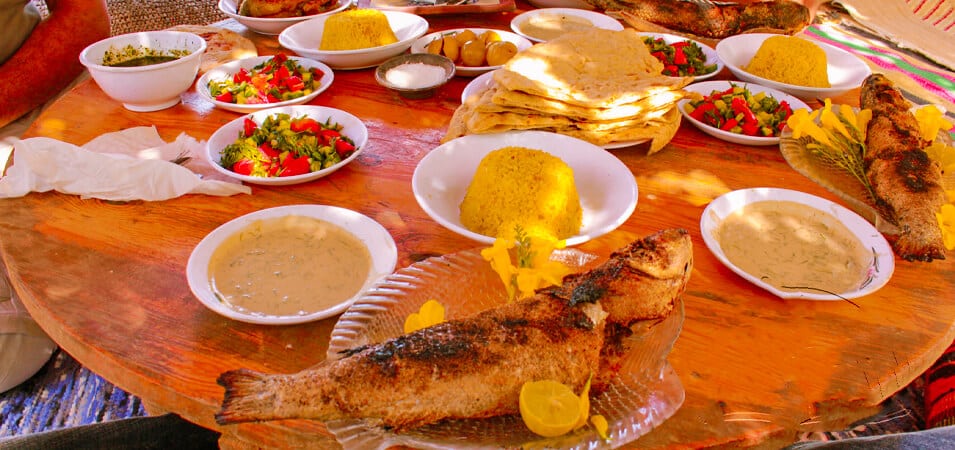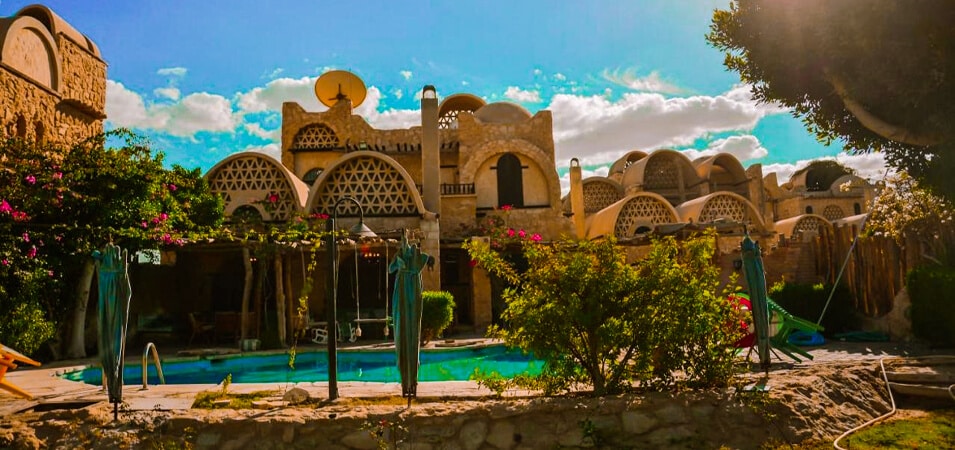A secret treasure named Tunis Village may be found tucked away amid the lovely surroundings of Fayoum, Egypt. This tranquil haven is well-known for the beguiling beauty of its surroundings, as well as its rich history and active local culture. In this piece, we will go on an adventure into Tunis Village, investigating its exciting history, magnificent vistas, and the one-of-a-kind experiences it provides for tourists that come to visit. Let’s immerse ourselves in the allure of this attractive location, shall we?
Book Our Egypt Vacation Packages
The History of Tunis Village
Origins and Significance
The history of Tunis Village may be traced back several centuries. Tunisian artisans who had to flee their native country owing to political upheaval in the 19th century were the first people to settle there. These craftsmen carried with them their rich cultural traditions, their skilled artistry, and their unique architectural style, all of which can still be seen today in the buildings that can be seen in the hamlet.
Cultural Influence and Preservation
Tunis Village has, throughout its history, developed into a crossroads of civilizations, fusing elements of Tunisian, Egyptian, and Nubian heritage. The natives of the area have put in a lot of work to protect their legacy, ensuring that the customs, arts, and crafts passed down from their ancestors will go on for generations to come. The tenacity and willpower with which its residents have faced adversity are on full display at Tunis Village.

Exploring the Enchanting Sights
Tunis Pottery Workshop
The Tunis Pottery Workshop is one of the most exciting and enjoyable features of Tunis Village. The hands of trained craftspeople shape clay into stunning pottery works at this studio, a nexus for creativity and handicraft. The visitors get the opportunity to see the skilled artisans at work, gain insight into the procedures involved in pottery production, and even try crafting their own one-of-a-kind piece of pottery.
Qasr Qarun
Ancient ruins going back to the Greco-Roman period may be seen at Qasr Qarun, which can be found close to Tunis Village. This archaeological site, which provides visitors with a look into the splendor of times gone by, should be noticed by everyone interested in history. The temple is a unique location to visit because of the elaborate carvings, well-preserved architecture, and fascinating history that can be found there.
Don’t Miss To Read our articles about :
- 10 Things That Will Surprise You About Traveling To Egypt
- Best Places to Visit in Luxor and Aswan
- Exploring the Magic of Christmas in Egypt: A Guide for Travelers
- Gifts to Buy From Egypt: Unveiling the Treasures of Ancient Craftsmanship
- The Best Places to Visit in Egypt: Unraveling the Riches of Ancient Civilization
- Tips for the Best Nile Cruises in Egypt Christmas
Immersive Experiences in Tunis Village
Traditional Crafts and Workshops
Traditional arts and crafts may be abundant throughout Tunis Village’s many studios and businesses. Visitors can participate in activities that require their hands, such as weaving, painting, and producing pottery. These hands-on experiences provide a once-in-a-lifetime chance to pick the brains of experienced craftspeople and get a deeper understanding of time-honored methods handed down from generation to generation.
Culinary Delights
Both history and food may be found in Tunis Village. This town in the north of Tunisia has an extensive culinary heritage. Tunisian cuisine, which drew influence from the Mediterranean, Arabs, Berbers, and Ottomans, emerged concurrently with the growth of Tunis Village. The Berber tribes established Tunis Village. Throughout history, the region has been subjugated under the rule of the Phoenicians, Romans, Vandals, Byzantines, Arabs, and Ottomans. These ancient civilizations left their mark on the flavors and components of Tunisian cuisine. Tunisian cuisine is defined by its use of various spices. Because of its proximity to the Mediterranean, Tunis Village developed into a hub for the spice trade. Spices like cumin, coriander, caraway, saffron, and cinnamon were brought in from other countries, which gave the regional cuisine more depth and complexity.
Olive oil is produced in the village of Tunis. Since ancient times, this region has been known for the excellence of its olive oil production. The extraction of olive oil has been completed by people utilizing methods that date back generations. In Tunisian cuisine, olive oil is often used to prepare stews, salad dressings, and sauces. Seafood is a staple of Tunisian cuisine, which makes sense given the country’s location on the Mediterranean. Delicious meals are created by preparing and cooking fresh fish and seafood from the Mediterranean Sea. Since the beginning of time, fishermen in Tunisia have used time-honored fishing techniques to harvest red mullet, sea bass, sardines, and octopus in an environmentally responsible manner.

Accommodation and Hospitality
Eco-Lodges and Guesthouses
At Tunis Village, guests can choose from various hospitable accommodations, ranging from eco-lodges to quaint guesthouses. These businesses combine in such a way as to be in perfect harmony with their natural environments, making them the ideal places for guests to find peace. Guests are made to feel at home and immersed in the quaint allure of the town thanks to the kind hospitality of the inhabitants, which lends a very personal touch to the stay.
Cultural Immersion Programs
Cultural immersion programs are offered to individuals interested in developing a more profound relationship with Tunis Village and its inhabitants. These programs provide the chance to live with local families, participate in everyday activities, and obtain first-hand knowledge of the community’s customs and way of life. It is a beautiful opportunity to develop connections that will last a lifetime and to make memories that will never be forgotten.
Don’t Miss To Read our articles about :
- Discover Egypt’s Holy Family Trail: Unveiling Sacred Destinations
- Discover Egypt’s Ramadan: Customs and Celebrations
- Ultimate Guide: Planning a Trip to Egypt – Top Tips & Attractions
- Discover Egypt’s Stunning National Parks: Nature’s Beauty
Conclusion
Discover intriguing aspects of Egyptian history and culture at Fayoum, Egypt’s Tunis Village, while you’re there. It is a living testament to the prosperous heritage the area has left behind, with its rich history, gorgeous scenery, and unique experiences. You are in for a one-of-a-kind experience if you make your way to Tunis Village, where you can learn about the art of manufacturing pottery in the area and try some of the most delectable dishes prepared locally.
FAQs
How can I reach Tunis Village from Cairo?
To reach Tunis Village from Cairo, you can hire a private car or take a bus to Fayoum City and then arrange for local transportation.
Are there any accommodations within Tunis Village?
Yes, Tunis Village offers a range of accommodations, including eco-lodges and guesthouses, providing visitors with a comfortable and authentic stay experience.
Can I participate in the pottery-making process in Tunis Village?
Absolutely! The Tunis Pottery Workshop welcomes visitors to witness the pottery-making process and even try to create their pottery under the guidance of skilled artisans.
What is the best time of the year to visit Tunis Village?
The best time to visit Tunis Village is during spring and autumn, when the weather is pleasant, and the landscapes are adorned with blooming flowers and lush greenery.
Are there any other attractions near Tunis Village?
Yes, Qasr Qarun, an ancient temple, is located near Tunis Village and is worth exploring for its historical significance and architectural beauty.
